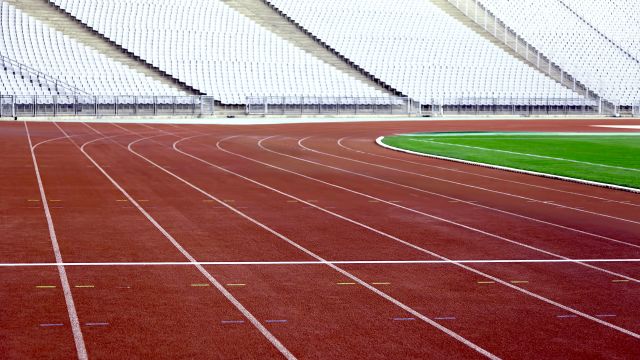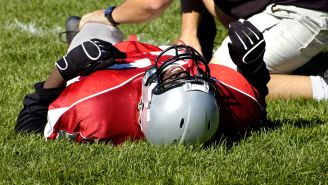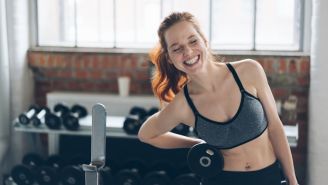Updated on April 6, 2022.
Millions of people dream of getting gold on the world stage, but so few ever make that dream a reality. It takes years of dedication and discipline, scientific training, a precise diet, the right genes and plenty of luck to compete at an international level. These athletes are physical specimens at peak condition—but is there a downside to all that training? We talked to Keith Roach, MD, associate professor in clinical medicine in the division of general medicine at Weill Cornell Medical College and New York Presbyterian Hospital, to get his take on how elite athletes’ training may be helping—or hurting—their RealAge.
Far above normal
According to Dr. Roach, exercise—especially cardiovascular exercise—eventually produces diminishing returns for your RealAge. “The maximum benefit is roughly equivalent to walking six to eight miles per day,” he says. “That’s a lot more than most people do, but it’s nothing next to elite athletes. It’s likely that one hour of their training gets them to maximum mortality benefits.”
If an athlete sustains an injury during their intense training, can that influence their RealAge? Unlikely. “An injury doesn’t significantly affect the RealAge unless you get really banged up,” says Roach. Exceptions could be athletes who have had multiple surgeries to repair serious injuries, but the change in RealAge is still negligible.
International athletes also maintain very precise diets, which reduces the RealAge further. “It’s almost impossible to be too strict,” Roach says. “There are some pitfalls, but anyone with a trainer who knows about nutrition will know how to avoid them. For us mere mortals, the pitfalls to avoid are processed food, too much red meat and too much alcohol.”
Mental benefits
Roach says that the benefits of elite training extend to more than just the body. “If you look at longevity of world-class athletes, they generally live a really long time,” he says. “Part of that is the balance you need to succeed at that level. You know how to control stress, so it doesn’t affect performance.” Managing stress properly is very important in having a younger RealAge, says Roach. In fact, for the majority of people, managing stress can reduce RealAge by up to 1.1 years for women and 2.4 years for men.
Sport-specific differences?
Whether an athlete’s sport is based in strength or in endurance won’t make much of a difference to her RealAge, Roach says. “They are incredibly fit specimens. Even someone on the table tennis team is going to look like an elite athlete.” Swimmer Michael Phelps, gymnast Simone Biles, and wrestler Jordan Burroughs will all probably have a similar difference in their RealAges and their biological ages, despite the diverse demands each of their sports places on them.
The bottom line
The biological ages of international-level athletes will vary based on their sports—members of the U.S. women’s gymnastics teams tend to be in their late teens or early 20s, while Australian equestrian Mary Hanna is a grandmother. Assuming, for argument’s sake, the biological age of a world champion is 30, “I’d be willing to guess the RealAge is probably close to 10 years younger than the biological age,” says Roach. That’s nearly as impressive as making the podium. “A 10-year-younger RealAge is a lot easier to do at age 70 than at age 30,” Roach says. “That’s nearly the maximum possible benefit.”







